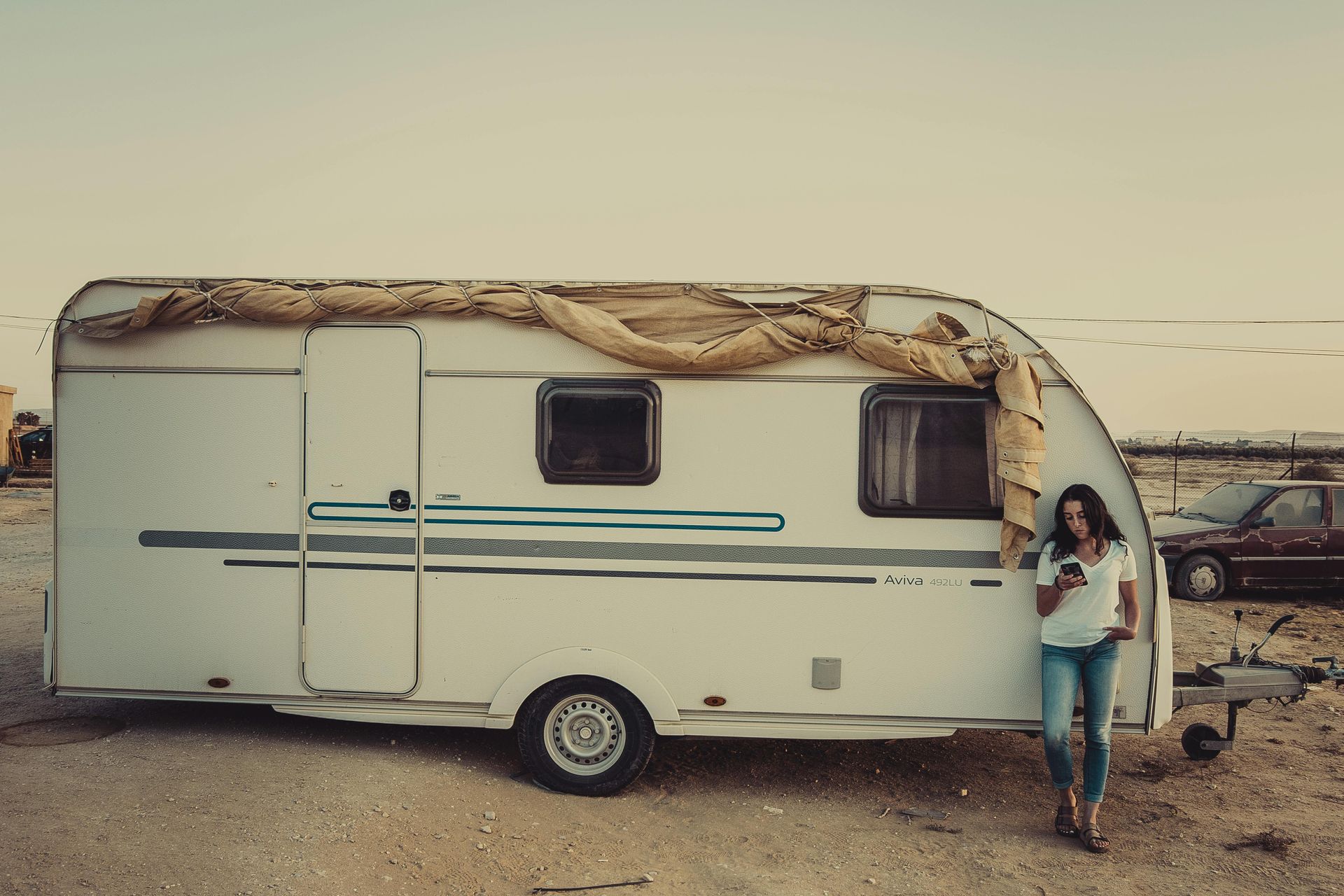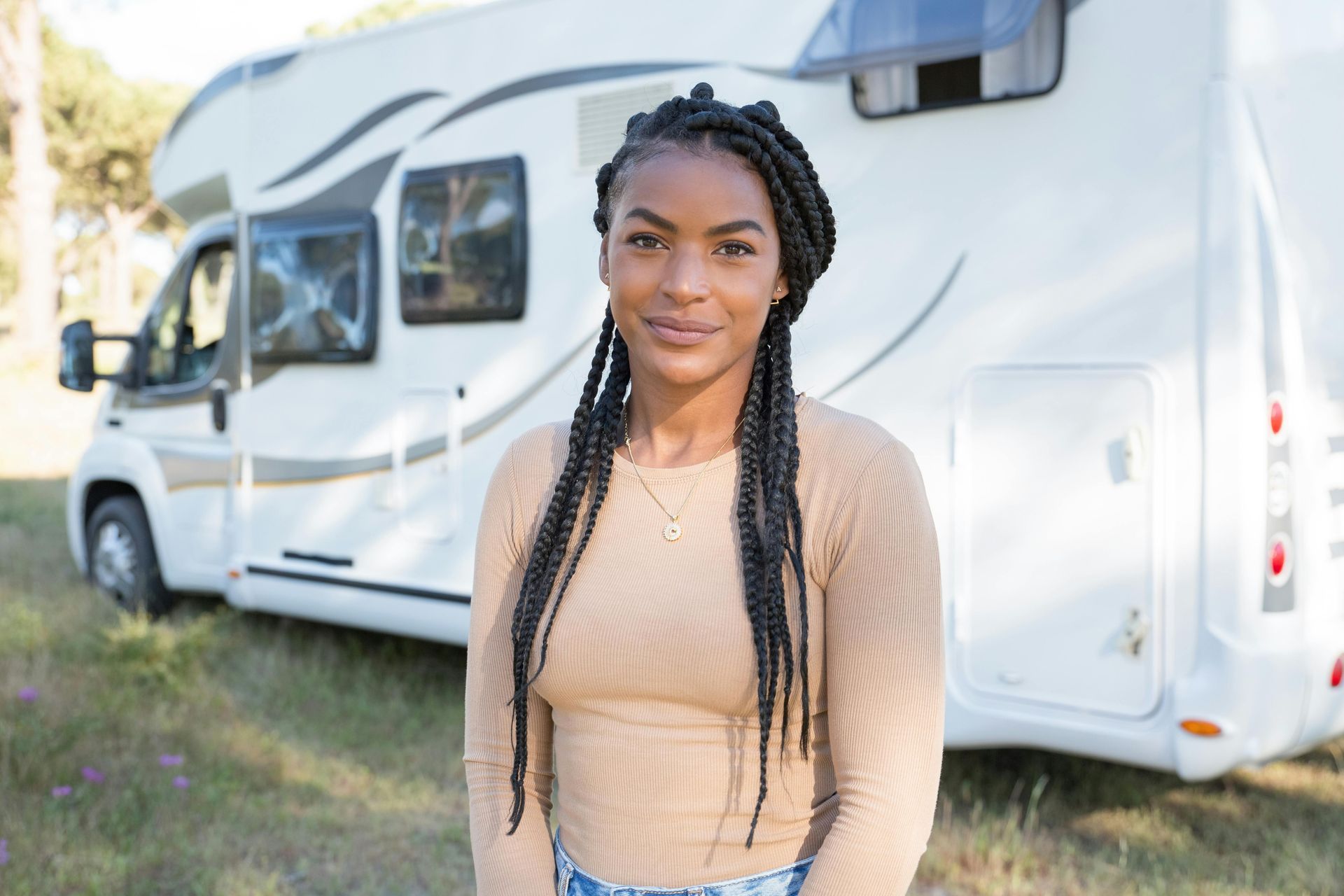Unlock the World of RVing with Learn to RV




Frequently Asked Questions
Got questions about RV ownership, usage, or troubleshooting? You're not alone! Here are some common inquiries we receive from both new and seasoned RVers, along with helpful answers to guide you on your journey.
General RV Questions
What should I consider before buying an RV?
Before purchasing an RV, think about your travel style, budget, and the type of RV that suits your needs—whether it's a motorhome, travel trailer, or fifth wheel. Research different models and consider factors like size, amenities, and fuel efficiency.How do I maintain my RV?
Regular maintenance is key to keeping your RV in top shape. This includes checking the tires, brakes, and fluid levels, as well as inspecting the roof and seals for leaks. Create a maintenance schedule to ensure nothing is overlooked.Get maintenance tipsWhat are the best practices for RV camping?
When camping in your RV, always choose a suitable campsite, follow local regulations, and practice Leave No Trace principles. Set up your RV properly, including leveling it and connecting utilities, to ensure a comfortable stay.How can I troubleshoot common RV issues?
Common RV issues include electrical problems, plumbing leaks, and appliance malfunctions. Familiarize yourself with your RV's systems and keep a toolkit handy. For persistent issues, consult a professional or refer to your owner's manual.What should I pack for an RV trip?
Packing for an RV trip involves more than just clothes. Don't forget essentials like cooking supplies, tools, first aid kits, and outdoor gear. Make a checklist to ensure you have everything you need for a successful adventure.Read: Newbie - First Trip EssentialsWhat type of RV is best for beginners?
For beginners, travel trailers or Class C motorhomes are often recommended. They're generally easier to handle and maintain compared to larger RVs like fifth wheels or Class A motorhomes.
What's the difference between a travel trailer, fifth wheel, and motorhome?
A travel trailer is towed by a vehicle using a standard hitch. A fifth wheel requires a special hitch installed in the bed of a truck. Motorhomes are self-contained and come in three main classes (A, B, and C), each with different sizes and features.
Do I need a special license to drive an RV?
Most RVs can be driven with a standard driver’s license. However, some very large motorhomes or fifth wheels may require a special license depending on your state laws.
How do I choose the right RV for my family or travel style?
Consider how many people will travel with you, how often you plan to use it, and whether you prefer full hookups or boondocking. Tour different RV types to see what layout feels most comfortable.
Is it better to buy new or used when purchasing an RV?
Learn MoreBuying used can save money and avoid depreciation, but a new RV comes with warranties and the latest features. Consider your budget and willingness to take on potential repairs with used models.
RV Setup & Towing
What kind of vehicle do I need to tow a travel trailer or fifth wheel?
Learn moreYou'll need a vehicle rated to handle the weight of your trailer. Fifth wheels typically require a heavy-duty pickup truck, while travel trailers can often be towed by SUVs or half-ton trucks.
How do I level my RV once I park it?
Read: Lynx Levelers Leveling PadsUse leveling blocks or an automatic leveling system. First, level side to side using blocks under the tires, then level front to back by adjusting the tongue jack or landing gear.
What is "hitch weight" and why does it matter?
Learn MoreHitch weight is the amount of weight the trailer places on your tow vehicle's hitch. It affects towing stability and must be within your vehicle's capacity to ensure safe towing.
How do I connect to water, sewer, and electric at a campsite?
Use a freshwater hose for the water connection, a sewer hose for the black and gray tank outlet, and a power cord to connect to the electric pedestal. Always check your power compatibility (30 amp vs. 50 amp).
How do I safely back up or park my RV?
Read: Tips and Tricks to Backing UpGo slow, use mirrors and a spotter if available. Practice makes perfect—consider practicing in an empty parking lot to gain confidence.
RV Living & Maintenance
How do I maintain the plumbing and tanks in my RV?
Use RV-safe toilet paper and tank treatments. Flush your black and gray tanks regularly and sanitize the freshwater system every few months.
What's the difference between gray water and black water?
Gray water is wastewater from sinks and showers. Black water is from the toilet and contains human waste. Both must be dumped at appropriate dump stations.
How often should I dump my holding tanks?
Read: How to Dump RV TanksDump tanks when they are about two-thirds full or as needed. Never leave valves open at a campsite—this can cause blockages.
How do I winterize my RV?
Learn MoreDrain water lines and tanks, add RV antifreeze to the plumbing system, and protect the battery and tires. Store your RV properly to prevent freeze damage.
What maintenance does an RV require regularly?
Learn MoreInspect seals and the roof, check tire pressure, test batteries, clean AC filters, and service the generator if equipped. Routine checks prevent costly repairs later.
Travel & Camping
Can I stay overnight at Walmart, Cracker Barrel, or truck stops?
Many allow overnight parking, but it varies by location. Always check with the manager and follow posted signs. Be courteous and don’t treat it like a campsite. It is also common practice to be sure you buy something from the store or restaurant as a way of thanking them for letting you stay.
How do I find good RV parks or campgrounds?
Use apps like Campendium, RV LIFE, or AllStays. Reviews, amenities, and pricing help you choose the best spots. Booking in advance is recommended during peak seasons.
What apps or tools are best for RV trip planning?
RV LIFE Trip Wizard, Roadtrippers, Google Maps, and GasBuddy are great tools for routing, fuel prices, and locating amenities.
How do I conserve water and power while boondocking?
Use LED lights, limit water use, take navy showers, and invest in solar panels and a good battery system. Efficient appliances also help.
Is it safe to travel full-time in an RV with kids or pets?
Yes! Many families travel full-time. Plan routines, stay organized, and prioritize safety. Pets need adequate ventilation and familiar items to stay comfortable.
RV Lifestyle
How much does it cost to live in an RV full-time?
Costs vary by lifestyle. Budget for campground fees, fuel, maintenance, insurance, food, and internet. Some save money over traditional living; others spend similarly.
What's it like to homeschool or work remotely from an RV?
Learn More About RoadschoolingIt can be incredibly rewarding with flexibility and new experiences. A strong internet connection and a structured schedule are essential.
How do I receive mail or packages while traveling?
Use mail forwarding services like Escapees or UPS Store. Amazon Lockers and General Delivery at post offices are also handy.
What’s the best internet setup for RV life?
A combination of cellular data (via hotspots or routers) and campground Wi-Fi (as a backup) works well. Consider providers like Verizon, T-Mobile, or Starlink.
How do I meet other RVers or join the RV community?
Discover CommunitiesAttend RV rallies, join Facebook groups, or use apps like RVillage. Online forums and campfire chats often lead to great friendships.
Still have a question?
Still have a question?
We will get back to you as soon as possible.
Please try again later.

